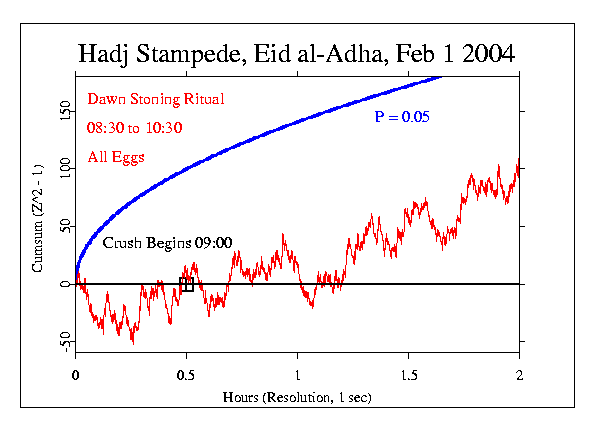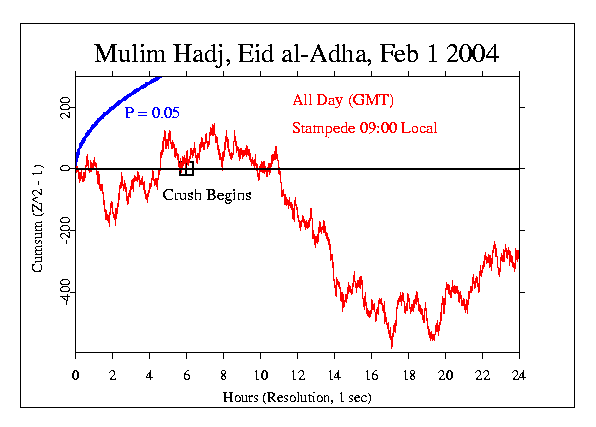|
A stampede during the ritual stoning of the pillars
at the climax the Hadj pilgrimage, 1 February 2004,
in Saudi Arabia resulted in the deaths of 244 people.
The stampede occured near the holy Muslim city of Mecca, as pilgrims
scrambled to throw stones at pillars representing the devil.
It started at 9 A-M local time and lasted for 27 minutes.
Officials say more than 200 people were injured, some seriously.
Two million Muslims are attending the Hadj this year.
Last year 14 pilgrims, including six women, were killed in a stampede
during the first day of the stoning ritual.
The worst toll of the pilgrimage was in July 1990, when more than
1400 pilgrims were trampled or asphyxiated to death in a stampede
in a tunnel.
(From: ABC Radio Australia News)
Panic spread rapidly as many of the 2 million white-robed pilgrims,
chanting "God is greatest," surged toward the Jamarat Bridge in Mena to
throw stones at pillars representing the devil.
The ritual on Eid al-Adha, or Day of Sacrifice, has triggered stampedes
in the past, and authorities said they had tried to avert disaster this
year by urging people to perform the ceremony at different times.
"There were more than 400 meters of people pushing in the same
direction, [which] resulted in the collapse of those next to the stoning
area and those behind; that led to panic," Iyad bin Amin Madani, the
pilgrimage affairs and endowments minister, told reporters.
Madani said the movement of pilgrims to Jamarat Bridge had been smoothly
controlled between midnight on Saturday to 8:30 am (0530 GMT) on Sunday
before the start of the crush.
The GCP prediction was set for 8:30 to 10:30. Later it was determined
that the actual time of the stampede was 09:00. The Chisquare for the
two-hour segment is 7303.2 on 7200 df, with p = 0.195.

The larger context for this period shows a very strong downward trend
beginning a couple of hours after the tragedy, as shown in the next
figure. This is consistent with data taken during some other large-scale
meditations and religious services. (But not all cases -- some show
strong positive trends.) According to news reports,
the pilgrims continued their rituals, largely unfazed by the disaster.
Many Muslims believe that death during the hajj, one of the most
striking manifestations of faith and unity in the world, is a gift from
God that cleanses them of sin.
"Praise be to God -- If you die on the hajj, you are considered a
martyr," said Elhamy Osman, an Egyptian.
Another 272 pilgrims have died of natural causes during the hajj, which
all able-bodied Muslims must perform once in a lifetime if they can
afford it.

|